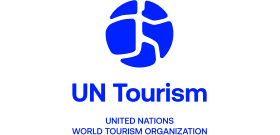 World Tourism Day 2025 in Melaka Highlights Sustainable Transformation and Global Collaboration
World Tourism Day 2025 in Melaka Highlights Sustainable Transformation and Global Collaboration
The historic city of Melaka, Malaysia recently served as the epicentre for global tourism as it hosted World Tourism Day 2025 under the theme “Tourism and Sustainable Transformation.” This year’s observance was not just a ceremonial event, but a focused dialogue on propelling tourism as a catalyst for positive change, resilience, and sustainable development—a message with deep resonance for Africa’s travel industry stakeholders.
United Nations Tourism, in partnership with Malaysia’s Ministry of Tourism, Arts and Culture, convened international leaders, policymakers, business innovators, and local representatives to deliberate on the future of tourism. The occasion coincided with the 7th World Tourism Conference (WTC), spotlighting Malaysia’s remarkable heritage and its ongoing investments in sustainable travel. For sub-Saharan Africa’s travel sector, the discussions and outcomes of Melaka offer timely insights and actionable pathways for shaping a more resilient and inclusive tourism landscape.
A Global Movement for Sustainable Growth
This year’s theme, “Tourism and Sustainable Transformation,” underscored the sector’s power to drive social progress, economic vitality, and environmental protection. The event’s opening saw Malaysia’s Minister of Tourism, Arts and Culture, H.E. Dato Sri Tiong King Sing, welcome a global audience—emphasising the need for sound governance, inclusive policy, and strategic planning to maximise tourism’s benefits while conserving cultural and natural assets.
United Nations Secretary-General António Guterres delivered a clear message: tourism can be a transformative force, generating jobs, supporting local economies, and building cultural bridges. However, Guterres stressed, these benefits can only be sustained if tourism is developed responsibly. “Let’s harness tourism as a force for resilience, sustainability, and shared progress,” he urged. Echoing this sentiment, UN Tourism Secretary-General Zurab Pololikashvili highlighted Melaka as proof that sustainability and inclusivity are key to making tourism a vehicle for empowerment and environmental stewardship.
Malaysia’s Model: Blending Progress and Sustainability
Malaysia’s Deputy Prime Minister, The Right Honourable Dato’ Sri Haji Fadillah bin Yusof, formally opened the World Tourism Day celebrations and the World Tourism Conference, outlining Malaysia’s multi-faceted approach to tourism development. He cited initiatives such as expanding high-value tourism segments, nurturing digital nomad hubs, investing in sustainable aviation fuel, and promoting community-led ecotourism. These efforts, he explained, demonstrate how economic growth can be balanced with social responsibility and environmental care. Malaysia’s commitment was further underscored by its decision to join the UN Tourism International Network of Sustainable Tourism Observatories (INSTO) with a pilot project in Mersing, Johor—a move aimed at tracking and enhancing the sustainability of tourism development.
The festivities in Melaka included a rich tapestry of activities: high-level panel discussions, dynamic cultural showcases, and exhibitions that brought together traditions and innovation. These activities illustrated key strategies for building a resilient tourism sector, many of which hold direct relevance for Africa’s evolving travel ecosystem.
Strategic Pillars for Industry Transformation
Among the priorities spotlighted in Melaka were:
- Education and Skills Development: Recognising the importance of empowering women, youth, and marginalised groups, the event promoted tourism-related training and employment as tools for inclusive growth. African travel professionals can draw from this approach, investing in upskilling and capacity building, particularly in rural and underserved areas.
- Innovation and Digital Transformation: The conference highlighted the role of entrepreneurs, start-ups, and innovators in revolutionising tourism. Investments in digital education and efforts to close the digital divide—especially for rural, youth, and post-conflict communities—emerged as vital. For Africa, embracing digital platforms, mobile solutions, and smart destination management will be crucial in boosting competitiveness and accessibility.
- Supporting Local Economies: Prioritising micro, small, and medium-sized enterprises ensures that tourism’s financial benefits reach local communities. This aligns with the call across Africa for greater local participation in supply chains and the promotion of authentic, locally made products and experiences.
- Cultural Exchange and Preservation: Showcasing Malaysia’s diverse heritage through performances and culinary exhibitions reinforced tourism’s role in maintaining traditions. African destinations, rich in cultural and artistic diversity, stand to benefit by spotlighting local heritage and creating immersive, authentic visitor experiences.
World Tourism Conference 2025: Shaping the Sector’s Next Chapter
The 7th World Tourism Conference in Melaka provided an invaluable forum for stakeholders to share strategies for sustainable development, resilience, and environmental stewardship. Expert sessions explored digital transformation, community-led tourism, and climate-neutral travel—topics at the forefront of global industry trends and directly relevant to Africa’s future trajectory. The collaborative spirit fostered at the conference underscored the necessity of cross-border partnerships, knowledge exchange, and policy alignment to unlock new growth opportunities and address common challenges.
Looking Forward: Embracing the Digital Agenda
As the celebrations concluded, Malaysia officially handed over the mantle of World Tourism Day host to El Salvador, which will lead the 2026 observance under the theme “Digital Agenda and Artificial Intelligence to Redesign Tourism.” Next year’s focus on digital transformation and AI integration signals a new era for the sector—one in which African destinations must be prepared to embrace cutting-edge tools, enhance operational efficiency, and deliver personalised, data-driven visitor experiences.
World Tourism Day 2025 in Melaka has set a powerful example of how nations can leverage tourism for economic, social, and environmental progress. For Africa’s travel sector, the event’s strategies and success stories offer a roadmap for creating resilient, inclusive, and future-ready tourism models. By investing in people, technology, and local entrepreneurship—and by fostering collaboration both within the continent and globally—Africa can accelerate its transformation from a destination of promise to a leader in sustainable tourism innovation.
